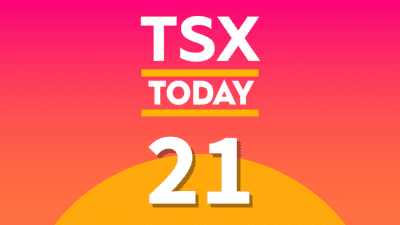After the recent sell-off we saw in the stock market, many investors are worried about another market crash. U.S. presidential election uncertainty could bring volatility in the markets. A slower economic recovery also adds to the risk.
You can buy some stocks to protect your portfolio against a market downturn. You should look at stocks with a negative beta. A negative beta correlation means that an investment is moving in the opposite direction of the stock market.
When the market goes down, negative-beta stocks will tend to increase. A negative beta does not necessarily mean that there is no risk. Instead, a negative beta means that your investment offers protection against serious market downturns. Lassonde Industries (TSX:LAS.A) and Metro (TSX:MRU) stocks both have negative betas, so you should buy them when the stock market crashes.
Lassonde Industries
The stock of Lassonde has a beta of -0.16. Shares are up about 3% for the year but have risen more than 50% since March bottom. Lassonde saw a sharp rise in demand for its products during the pandemic.
The company based in Rougemont unveiled a profit up more than 66% for the second quarter. Lassonde posted profit attributable to shareholders of $26 million, or $3.75 per share, for the quarter ended June 27, compared to a comparable profit of $15.6 million, or $2.25 per share, for the same period last year.
The fruit and vegetable juice producer’s sales climbed to $498.2 million in the most recent quarter from $419.7 million in the same quarter in 2019.
Lassonde noted that the profitability of its U.S. operations improved in the most recent quarter thanks to strong demand. In Canada, the production rate of its specialty food products plant has improved, following capital works carried out in 2019.
The company benefited in the second quarter from the addition to its products of non-alcoholic beverages and snacks from Sun-Rype, which it completed the acquisition early in the year. These activities contributed $1.6 million to net income attributable to shareholders in the second quarter and increased sales by $35.8 million.
However, even excluding Sun-Rype’s contribution and currency effects, Lassonde’s sales grew 7.5% in the most recent quarter, and the company estimated that a significant portion of this increase was attributable to the direct and indirect effects of the pandemic on consumer behaviour.
Subject to significant external factors, including the impacts of the evolution of COVID-19, and excluding currency effects as well as the impact of the acquisition of Sun-Rype to maintain a comparable basis, the company believes it is able to achieve in 2020 a growth rate of consolidated annual sales higher than that of 2019.
Metro
Metro stock has a beta of -0.12. Shares are up 13% year to date but have soared 20% since March lows.
In the current quarter, sales at stores open for at least a year — a key metric in the retail sector — jumped about 10% at company-operated food stores. In the commercial sections of its pharmacies, the increase is over 6%.
During this period, same-store sales at grocery stores and commercial sections of drugstores grew 15.6% and declined 2.5%, respectively.
During the third quarter, the Quebec company spent $107 million more due to the health crisis. About half of this amount was attributable to the temporary salary bonus.
Metro expects costs related to the health crisis to be lower over the coming months.
Metro posted profits of $263.5 million, or $1.04 per share, in the third quarter, compared to $222.4 million, or $0.86 per share, a year ago. Sales rose more than 10% to $5.84 billion, as the pandemic prompted many consumers to cook at home rather than eat out.
Excluding one-time items, the grocer’s adjusted earnings per share were $1.08, compared to $0.90 per share in the third quarter last year. Analysts on average expected adjusted earnings of $1.07 per share.
Metro believes the COVID-19 pandemic will continue to drive sales and anticipates a decrease in spending related to the coronavirus, as the grocer recently ended the temporary pay bonus offered to its employees at the start of the health crisis.








